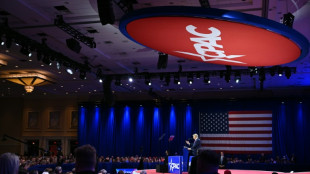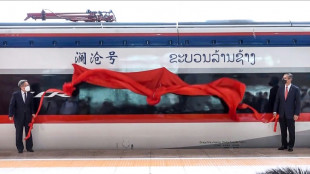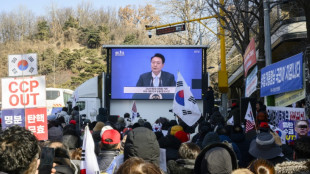France hosts emergency meeting on Europe response to Trump
European leaders met on Monday for emergency talks in Paris called by French President Emmanuel Macron to agree a coordinated response to a shock policy shift on the war in Ukraine by the new US administration of Donald Trump.
With European policymakers leaving the annual Munich Security Forum dazed by US Vice President JD Vance's withering attack on the European Union, key EU leaders, as well as UK Prime Minister Keir Starmer, were in Paris for the summit.
In the most concrete sign yet of the US policy shift, Washington and Moscow's top diplomats on Tuesday were due to have the first such face-to-face meeting since Russia invaded Ukraine in February 2022, a clear sign that Trump wants to bring Russian President Vladimir Putin in from the cold.
Facing one of their biggest challenges in years, European leaders fear that Trump wants to make peace with Russia in talks that will not even involve Kyiv, let alone the European Union.
Other key participants in the summit include NATO chief Mark Rutte, Danish Prime Minister Mette Frederiksen -- who has in the last weeks battled to rebuff Trump's territorial claim to Greenland -- and German Chancellor Olaf Scholz.
Macron held telephone talks with Trump just before the summit, the French presidency said.
There are increasingly urgent calls for Europe to ensure its own defence independent of a US administration that is making clear its foreign policy priority is China.
"Europe's security is at a turning point," EU commission chief Ursula von der Leyen wrote on X.
"Yes, it is about Ukraine -- but it is also about us," she said, calling for a "surge" on defence spending.
- 'Take practical steps' -
Macron has described Trump's return for a second term in the White House as an "electroshock" and there are initial signs some of his counterparts are being stung into action.
Britain's Starmer, aware of the importance of London showing commitment to European security after Brexit, on Sunday said that he was willing to put "our own troops on the ground if necessary" in response to what he called "a once-in-a-generation moment for the collective security of our continent".
Polish Prime Minister Donald Tusk, another key participant, on Monday said that he would urge European leaders at the emergency summit to "immediately" boost Europe's defences, warning that they do not match Russia's.
"We will not be able to effectively help Ukraine if we do not immediately take practical steps regarding our own defence capabilities," Tusk told reporters.
French newspaper Le Monde said the rupture between Europe and the United States was "historic", but added that Europe had to show its capacity to ensure its own defence.
"European blindness came to an abrupt end in Munich. From now on, the security of the continent depends essentially on the Europeans themselves, and on their ability to maintain their unity," it added.
- 'Peace is still far off' -
But the notion of sending European troops to Ukraine -- even after a ceasefire -- was already causing friction within the European Union.
Spain's foreign minister, Jose Manuel Albares, said that, while it was necessary for Europeans to meet and prepare decisions, "nobody is currently planning to send troops to Ukraine, especially because peace is still far off".
Germany on Monday agreed, with deputy government spokeswoman Christiane Hoffmann telling reporters it was "premature" to talk about sending troops to Ukraine.
Scholz late on Sunday had said that negotiations on Ukraine's future could not be successful without European guarantees "that we will have created and accepted".
Meanwhile Hungary, whose Prime Minister Viktor Orban is close to both Trump and Putin, said that Monday's conference was an effort to "prevent" peace.
- 'Process to peace' -
The Paris talks come as Washington said that Secretary of State Marco Rubio, National Security Advisor Mike Waltz and Special Envoy Steve Witkoff on Tuesday would meet a Russian delegation including Foreign Minister Sergei Lavrov in Riyadh, ahead of a future meeting between Trump and Putin in the Saudi capital.
Rubio had earlier sought to play down expectations of any breakthrough at upcoming talks with Russian officials.
"A process towards peace is not a one-meeting thing," he told the CBS network.
Ukrainian President Volodymyr Zelensky was to visit Saudi Arabia on Wednesday, one day after the meeting between top US and Russian officials.
Zelensky last week had announced the trip along with stops in the United Arab Emirates and Turkey without giving dates, adding that he had no plans to meet Russian or US officials.
Y.Lewis--RTC


